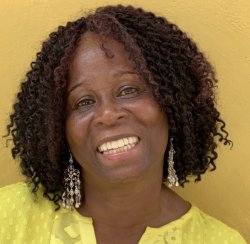
View Profile Page

Yanick Joseph
Associate Professor, School of Nursing
- Office:
- The School of Nursing and The Graduate School
- Email:
- josephy@montclair.edu
- vCard:
- Download vCard
Profile
I am Yanick Joseph, Ed. D., MPA, MSN, RN. I hold a Doctorate in Education Leadership from Argosy University and am an Associate Professor at Montclair State University.
I am an experienced leader in healthcare management with 35+ years in the healthcare industry, with over
15 years in nursing education. My teaching perspective is grounded in the constructivist learning framework, and I bring a repertoire of skills to impart knowledge to students using a variety of instruction modalities. I embrace instructional technology that can authenticate the promotion of scholarship. I employ classroom dynamics to permit dialogue, self-direction, and inquiry, fostering higher student engagement.
I teach in the School of Nursing in the graduate and undergraduate departments. I am the Simulation Committee Chair, bringing my expertise to develop a newly formed simulation center.
My clinical expertise entails introducing nursing care principles, health assessment, women’s health, leadership, health policy, team building/ coaching/ mentoring, and innovative customer relationship management. My area of research is in implicit bias in student nurses, and my passion is in experiential learning and simulation.
Specialization
I am Yanick Joseph, Ed. D., MPA, MSN, RN. I hold a Doctorate in Education Leadership from Argosy University and am an Associate Professor at Montclair State University.
I am an experienced leader in healthcare management with 35+ years in the healthcare industry, with over 15 years in nursing education. My area of research is in implicit bias in student nurses, and my passion is in experiential learning and simulation.
Resume/CV
Research Projects
Implicit bias and Caring in Student Nurses.
he purpose of this study was to explore student nurses’ aware- ness of implicit biases that may exist related to caring for individuals of different races. To further explore this subject, several student nurses were asked to analyze their Implicit Association Test (IAT) results and reconcile their findings with their lived experiences. The students’ responses and assessments are reported in this study. Although several health disciplines are looking at those biases, there is a need for additional data to address those biases, specifically in nursing. A constructive, pedagogical approach is needed to rectify any remnant of culturally insensitive practices.